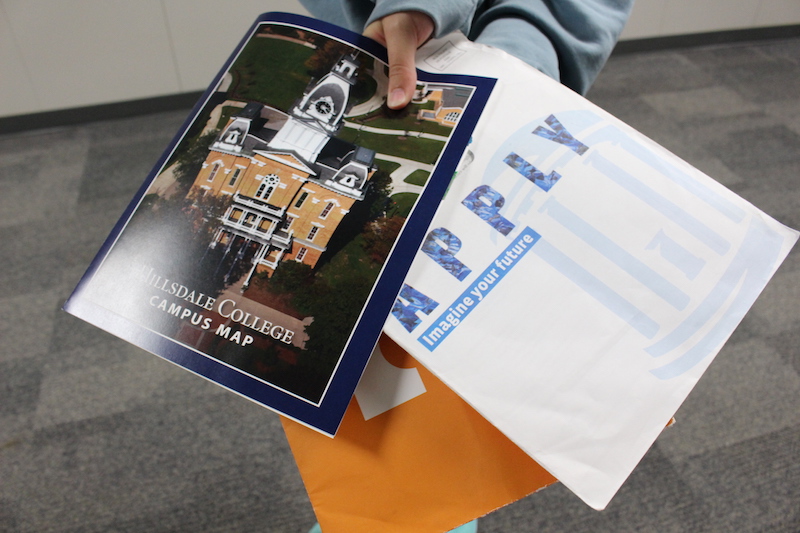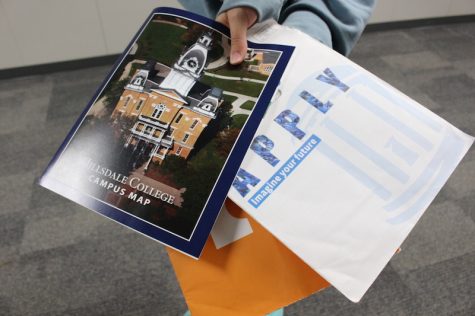How to choose the right college for you
Universities attempt to attract potential students by sending fliers and emails. Advertisements explain the best features of schools and what is needed to apply.
November 8, 2016
Here in Coppell, the standard for what is generally considered to be impressive is perpetually shifting towards the impossible. This can often result in unrealistic and skewed perspectives for many of us seniors who are set to make life-altering decisions in the next few months. So, I have taken the liberty of suggesting three easy tips to follow when choosing your college.
1. Do not turn down a school because you want to avoid seeing people you know
This might be the most popular complaint I have heard so far when discussing colleges with my classmates. Fears about running into someone from Coppell, or being around the same type of people are all too common. However, it is important to note that if you choose a college such as Texas A&M at College Station or University of Texas at Austin, the only way you will see someone you knew in high school is if you seek out that person. On a campus as large as A&M and UT, there are varied people and social groups; anyone can find their niche.
- Choose a school that makes you excited, not your parents/friends/relatives
We are all too familiar with the prestige a person acquires when they are accepted into an Ivy League, and understandably so. But, do not kill yourself trying to get into an Ivy League just to gain that approval. While your parents may make it seem like you are inadequate if Harvard does not want you, the world will not end, nor will you. Granted, saying you got accepted into UT does not merit the same response as perhaps, acceptance into Brown.
But, great things have been done by UT graduates, just like Harvard graduates. The important question to remember about all of this is, “Am I excited about this college?” If yes, then go there. Your passion does not have to align with the standards of an Ivy League; if you are motivated to go somewhere you will carry yourself far.
- Worry about the price tag, the nagging from your parents may actually be substantive
Another upside to choosing a state college as averse to an Ivy League, at least for undergrad, is that the costs will not be exorbitantly high. This is, however, excluding families who have an average income that is less than 65,000 or in that range. But, since Coppell has a median household income of $116,793, the aid each student can receive may not be as substantial.
On average, $60,659 for tuition, room, board and fees combined at Harvard compared to $26,626 at UT Austin is a considerable difference. Although you may get into an Ivy League, consider the option of going to UT or some other cheaper public school and then attending a more expensive college for a graduate degree. Paying off college debt can be a major issue for many adults who still struggle to pay them off. Looking beyond the next four short years may be paramount to success.
Whatever the next four years holds in store for you, make sure that you control what you can. Obviously, there are many variables and factors to consider when making a college decision. But, as a fellow senior at CHS, I noticed a few misconceptions that needed to be corrected. At a place like Coppell, it is easy to get lost in the rat race. Choosing the right college can positively change the rest of your life, so make sure you are doing what is best for you.












